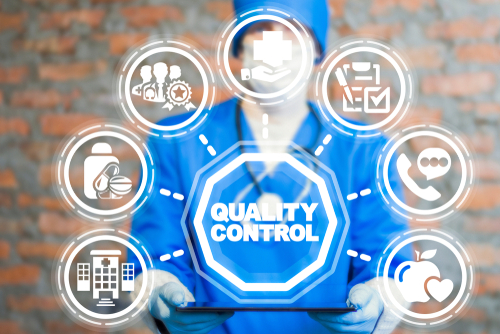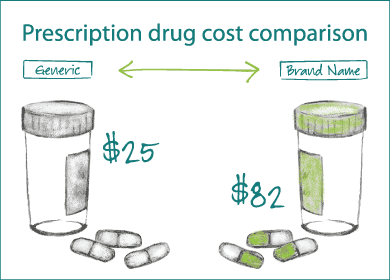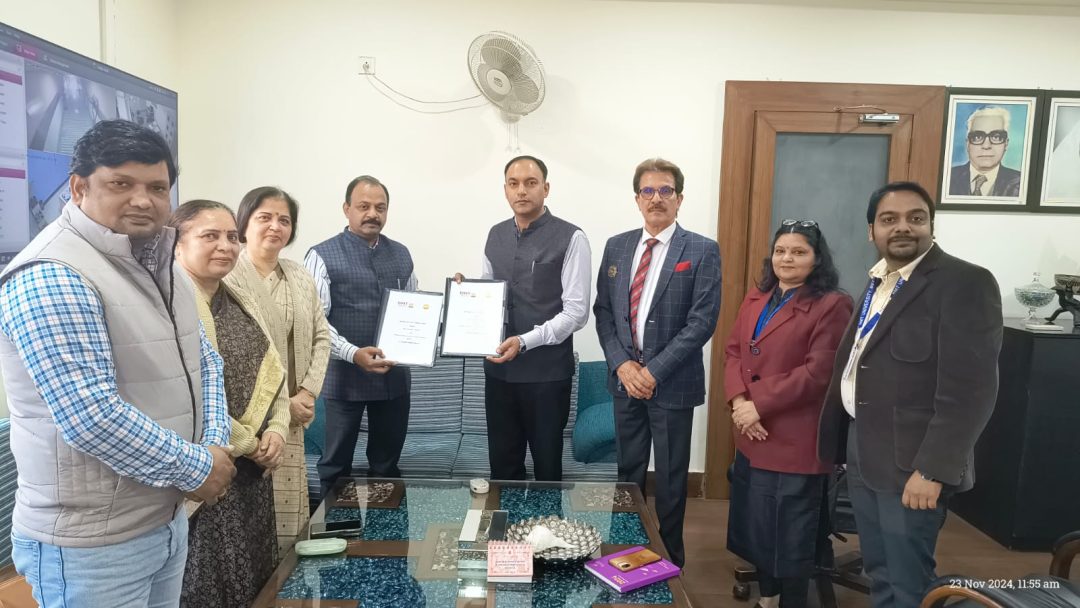In a world where healthcare costs continue to rise, finding affordable and effective treatment options is a priority for many individuals. This is where generic medications come into play, offering a promising solution. In this blog post, we will embark on a journey of understanding generic medications, exploring their benefits, safety measures, and cost-effectiveness in the field of pharmacy.
Generic medications are often a topic of interest and discussion among healthcare professionals, patients, and policy makers alike. These medications serve as alternatives to their brand-name counterparts, providing the same active ingredients and therapeutic effects but at a fraction of the cost. Their availability has revolutionized the healthcare landscape, making vital treatments accessible to a wider population.
One of the key advantages of generic drugs lies in their ability to significantly reduce healthcare expenses. By opting for generic medications, patients can experience substantial savings without compromising on the quality or effectiveness of their treatment. This cost-effectiveness extends beyond individual patients, playing a crucial role in reducing overall healthcare expenditure for both individuals and healthcare systems.
However, ensuring patient safety remains paramount. Regulatory bodies diligently oversee the approval and manufacturing processes of generic medications, guaranteeing that they meet rigorous standards for safety, efficacy, and quality. It is essential to debunk any misconceptions surrounding the safety of generic drugs and understand the stringent regulations in place to protect patients.
Through this blog post, we aim to bridge the knowledge gap between healthcare professionals and patients, empowering individuals to make informed decisions about their healthcare options. We will explore the benefits of generic medications, shed light on their safety regulations, and provide insights into the cost-effectiveness they offer. By understanding the world of generic medications.
1. The Definition and Importance of Generic Medications:
Generic medications play a pivotal role in modern healthcare by offering accessible and cost-effective treatment options to patients. To understand their significance, it is important to explore their definition and the benefits they bring to individuals and healthcare systems.
- Generic medications are pharmaceutical products that are developed to be therapeutically equivalent to brand-name drugs. They contain the same active ingredients, have the same dosage form, strength, route of administration, and intended use as their branded counterparts. The primary difference lies in their pricing and branding. Once the patent of a brand-name drug expires, other pharmaceutical companies can produce generic versions, which are generally priced significantly lower than the original product.
- The importance of generic medications cannot be overstated. One of their key advantages is affordability. The cost of healthcare and prescription medications has been rising steadily, placing a burden on individuals, insurance companies, and healthcare systems. Generic drugs help alleviate this financial strain by providing a more cost-effective alternative. They allow patients to access high-quality treatments without sacrificing their budgets, making healthcare more accessible and equitable.
- Moreover, generic medications contribute to increased competition in the pharmaceutical market. The availability of generic options promotes market dynamics that foster innovation and encourage the development of new drugs. As brand-name patents expire and generic versions enter the market, competition drives down prices and provides incentives for pharmaceutical companies to create new therapies. This ultimately benefits patients by expanding the range of treatment options available and promoting ongoing advancements in healthcare.
- The impact of generic medications extends beyond individual patients. Healthcare systems and insurers also benefit from the cost savings associated with generic drugs. By incorporating generic medications into formularies and treatment guidelines, healthcare providers and insurers can effectively manage costs while maintaining high standards of care. The availability of affordable generic options allows healthcare systems to allocate resources more efficiently and improve overall access to essential treatments.
- Define what generic medications are and how they differ from brand-name drugs.
- Explain the significance of generic drugs in providing affordable healthcare options.
- Discuss the role of generic medications in increasing access to essential treatments.

2. Ensuring Safety and Quality:
Ensuring the safety and quality of generic medications is of paramount importance in the pharmaceutical industry. Regulatory bodies and quality control measures are in place to safeguard patients and maintain high standards of efficacy and safety. Let’s delve deeper into the processes and mechanisms involved in assuring the safety and quality of generic drugs.
- Regulatory Approval: Before generic medications can reach the market, they undergo rigorous regulatory scrutiny. Regulatory agencies, such as the Food and Drug Administration (FDA) in the United States, evaluate the safety, efficacy, and quality of generic drugs. These agencies require generic manufacturers to demonstrate bio-equivalence to the brand-name drug through comprehensive studies and trials. Only when the generic medication is deemed to be equivalent to the reference product in terms of active ingredients, dosage form, strength, and route of administration, is it granted approval.
- Good Manufacturing Practices (GMP): Generic medication manufacturers must adhere to stringent Good Manufacturing Practices (GMP) to ensure the quality, safety, and consistency of their products. GMP guidelines outline the procedures and standards that manufacturers must follow in areas such as facility design, equipment maintenance, personnel training, quality control, and documentation. GMP inspections are conducted regularly to assess compliance and identify any deviations that may compromise the safety and quality of the medications.
- Quality Control and Testing: <Generic drug manufacturers conduct extensive quality control and testing throughout the manufacturing process. This includes raw material testing, in-process testing, and final product testing to verify the identity, purity, strength, and quality of the medications. Quality control laboratories equipped with advanced instrumentation and skilled personnel perform these tests, ensuring that the generic medications meet established specifications and are safe for consumption.
- Post-Market Surveillance: Even after generic medications are approved and available on the market, regulatory agencies continue to monitor their safety and quality. Adverse event reporting systems, pharmacovigilance programs, and post-market surveillance activities help detect and evaluate any potential safety concerns or adverse reactions associated with the use of generic drugs. This ongoing monitoring ensures that any issues are promptly addressed, maintaining patient safety and confidence in the quality of generic medications.
- By implementing robust regulatory approval processes, adhering to GMP guidelines, conducting thorough quality control and testing, and maintaining post-market surveillance, the pharmaceutical industry strives to ensure the safety and quality of generic medications. Patients can have confidence that generic drugs meet stringent standards and offer a reliable and safe alternative to brand-name medications.
- It is crucial for healthcare professionals, regulatory bodies, and patients to work collaboratively to report any suspected adverse events or quality concerns related to generic medications. This collective effort supports continuous improvement in safety measures and reinforces the importance of monitoring and maintaining the quality and safety of generic drugs.
- Explore the regulatory processes involved in approving generic medications.
- Discuss the rigorous standards that generic drugs must meet to ensure safety and efficacy.
- Address common misconceptions about the safety of generic medications.

3. Benefits of Generic Drugs for Patients:
Generic drugs offer numerous benefits to patients, making them a preferred choice for healthcare treatments. These benefits encompass cost savings, accessibility, therapeutic equivalence, and a wider range of treatment options. Let’s explore these advantages in detail:
- Cost Savings: One of the primary benefits of generic drugs is their affordability. Generic medications are typically priced significantly lower than their brand-name counterparts, making them more accessible to a wider population. This cost savings is particularly advantageous for patients who may be managing chronic conditions or require long-term medication use. By choosing generic drugs, patients can experience substantial cost savings without compromising on the quality or effectiveness of their treatment.
- Accessibility and Increased Treatment Options: Generic medications contribute to improved accessibility to essential treatments. As brand-name patents expire and generic versions become available, a broader range of treatment options becomes accessible to patients. This increased availability fosters competition, ensuring that patients have more choices and alternatives to meet their healthcare needs. Accessibility to generic drugs is particularly crucial in regions with limited healthcare resources or for individuals without comprehensive insurance coverage.
- Therapeutic Equivalence: Generic drugs are required to be therapeutically equivalent to brand-name drugs. This means they contain the same active ingredients, have the same strength, dosage form, and route of administration. Regulatory bodies, such as the FDA, ensure that generic drugs meet strict bioequivalence standards, guaranteeing their similarity in efficacy and safety to brand-name medications. Patients can have confidence that generic drugs will provide comparable therapeutic outcomes to their brand-name counterparts.
- Trustworthy Quality and Safety: Generic medications undergo rigorous regulatory scrutiny and adhere to stringent manufacturing standards. They must meet the same quality and safety standards as brand-name drugs. The manufacturing facilities and processes for generic drugs follow Good Manufacturing Practices (GMP), ensuring consistent quality and purity. Regulatory agencies conduct inspections and monitor post-market surveillance to maintain safety and quality standards. Patients can trust that generic drugs are manufactured with the same level of attention to quality and safety as brand-name medications.

- Lower Healthcare Costs: The cost-effectiveness of generic drugs not only benefits individual patients but also contributes to reducing overall healthcare costs. By choosing generic medications, patients, healthcare systems, and insurers can collectively achieve significant cost savings. Generic drugs enable healthcare providers to prescribe effective treatments at lower costs, making healthcare more financially sustainable and accessible for all.
- Highlight the cost-saving advantages of choosing generic medications over brand-name counterparts.
- Discuss how generic drugs contribute to reducing healthcare costs for individuals and healthcare systems.
- Share examples of therapeutic areas where generic medications have made a significant impact.
4. Bridging the Gap Between Healthcare Professionals and Patients:
- Provide tips for healthcare professionals to effectively communicate the benefits of generic drugs to their patients.
- Offer guidance to patients on how to discuss generic options with their healthcare providers.
- Emphasize the importance of collaboration between patients and healthcare professionals in making informed decisions.
5. Addressing Concerns and Misconceptions:
- Address common concerns or doubts patients may have about generic medications.
- Dispel myths surrounding the effectiveness and safety of generic drugs.
- Share real-life success stories or testimonials from patients who have benefited from using generic medications.
In conclusion, understanding the world of generic medications is essential for patients, healthcare professionals, and policy-makers alike. Generic drugs provide significant benefits, including cost savings, increased accessibility, therapeutic equivalence, and trustworthy quality and safety. By choosing generic medications, patients can access affordable treatments without compromising on efficacy or safety. The availability of generic drugs expands treatment options and contributes to the overall cost-effectiveness of healthcare systems. It is crucial to recognize the importance of generic medications in promoting equitable access to healthcare and fostering sustainable healthcare ecosystems. By embracing the benefits of generic drugs, we can work towards a future where high-quality healthcare is accessible to all.













